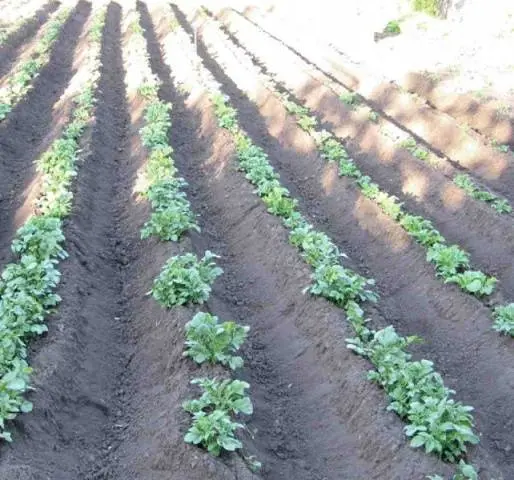Dutch potato varieties have long gained popularity among our gardeners and gardeners. They are great for our climate and have good yields. It is impossible not to note the persistent immunity of these varieties, which has long become their hallmark. The varieties bred in Holland differ from each other in terms of their maturation and overall yield. In this article, we will look at one of the best medium-late and high-yielding varieties – Sifra potatoes.
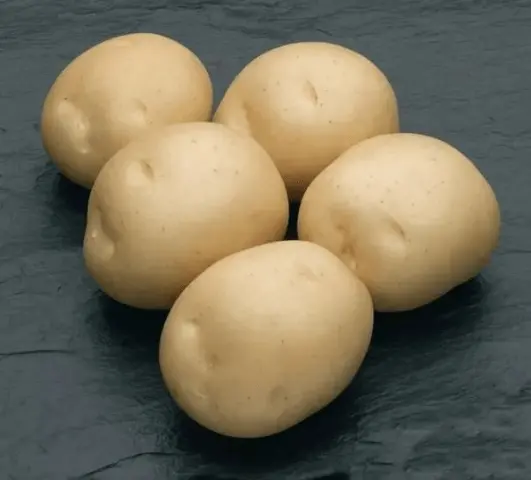
Characteristic of the variety
The Sifra potato variety has a medium-late ripening period, which allows gardeners to harvest it in 95-115 days from the date of planting the tubers. We grow it in many areas, but the State Register of Breeding Achievements of the Federation recommended this variety for planting only in the North-Western, Central, Volga-Vyatka and Central Black Earth regions. In addition to Our Country, Sifra is actively grown in Ukraine and Moldova.
Sifra bushes are very fickle: they can be both medium and high, they can stand upright or spread out. Their tops, medium in density, are formed from medium-sized leaves of an intermediate type. They are dark green in color and have slightly wavy edges. During flowering, potato bushes are covered with corollas of white large flowers.
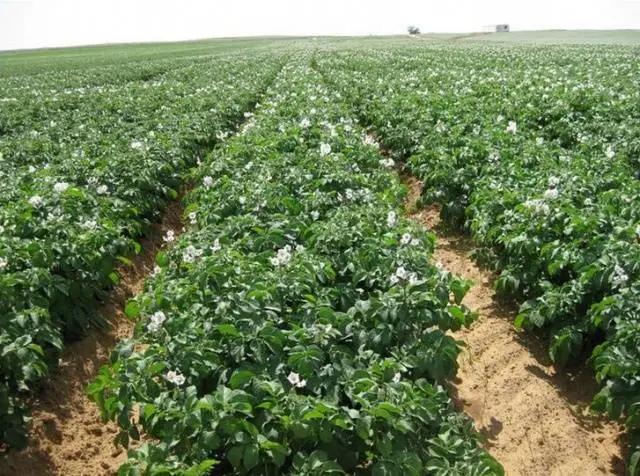
The powerful root system of the bushes allows them to grow up to 15 large potatoes. Their average weight will be about 100 – 150 grams. The appearance of Sifra potatoes is beyond praise. It is even and neat, with an almost perfect oval-rounded shape. The medium-thick yellow skin of the potato is very smooth to the touch. The eyes of the Sifra potato variety are shallow and few in number.
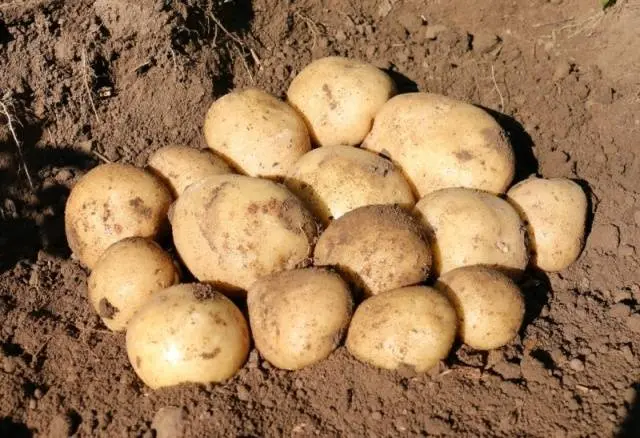
Inside, the pulp of the Sifra potato is white. Like other mid-late varieties, Sifra has an excellent rich taste. The flesh of the potato is slightly sweet, without dryness and wateriness. This variety is perfect for all types of cooking, whether it be boiling, frying in a pan and deep-frying, stuffing and baking. There is not so much starch in it – from 11% to 15%. But despite this, mashed potatoes from this potato are very airy and without lumps.
Such excellent taste and commodity characteristics allow the cultivation of Sifra potatoes not only for personal needs and farms, but also on an industrial scale. Neat, even potatoes perfectly tolerate transportation and are perfectly stored without loss of commercial and taste qualities. Subject to storage conditions, the keeping quality of tubers will be about 94% of the total crop. Thanks to these qualities, as well as excellent presentation, Sifra potatoes are often found on store shelves.
The advantages of this potato variety also include its drought tolerance and non-susceptibility to degeneration when harvested as a seed material. As for immunity, here the Sifra potato variety also has something to be proud of. This potato has strong immunity to many dangerous diseases and pests, such as:
- potato cancer;
- golden nematode;
- scab;
- viral diseases.
But his immunity of this potato can not resist tuber late blight and various fungal diseases.
The disadvantages of the Sifra potato variety include its sensitivity to sharp frosts, as well as the exactingness of the nutrient composition of the soil.
The yield of potatoes of this variety largely depends on climatic conditions and the nutrient composition of the soil. The minimum yield will be 179 centners per hectare, and the maximum can reach up to 500 centners per hectare.
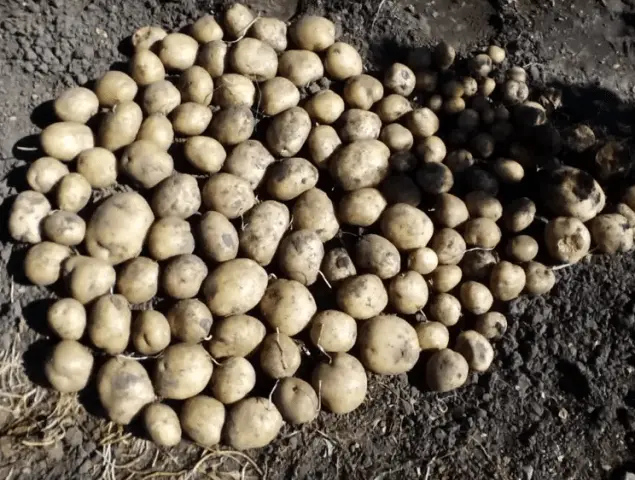
Care instructions
Sifra potatoes do not require any complicated care. The only requirement of this variety will be light and nutritious soil. When grown on such land, the variety will show excellent yields. But if the land is poor or heavy in its composition, then not only the overall yield will deteriorate, but also the quality of the crop itself.
The beds for potatoes of the Sifra variety should be prepared in the fall. To do this, they must be dug up to a depth of 30 cm with the obligatory turning of the earth. To improve the nutritional composition of the earth, humus and wood ash are added to the dug-up bed.
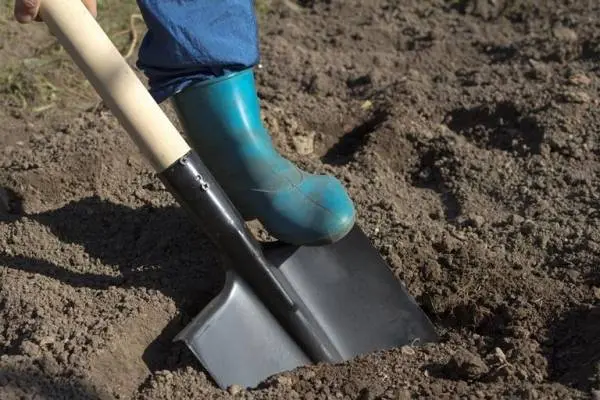
But planting potatoes after tomatoes, sweet peppers and eggplants will not lead to good yields.
Sifra belongs to mid-season varieties of potatoes, so its planting should begin only after the end of spring frosts, when the soil is already well warmed up.
A popular sign of the beginning of the potato sowing season is birch leaves, which have reached the size of a small coin.
Seed potatoes of the Sifra variety should be germinated a little before planting. To do this, the tubers need to be decomposed 1,5 – 2 months before planting in a bright place at a temperature not higher than +15 degrees. During this time, young sprouts should hatch from the potato eye. An indicator of the readiness of potatoes for planting is the length of these sprouts – it should be from 1 to 1,5 cm. If the sprouts appeared before the planned planting, then the tubers should be removed to a dark place and kept there until the planting itself.
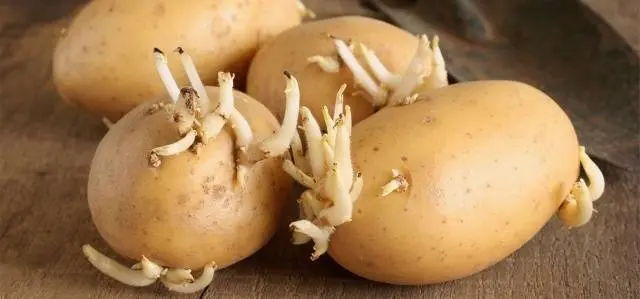
Germinated Sifra potatoes are planted in moist soil, after making holes or trenches in it. Their depth depends on the soil in the garden – the lighter it is, the deeper the hole or trench will be and vice versa. At the same time, on light soils, the maximum planting depth will be 12 cm, and on clay soil only 5 cm. The distance between adjacent tubers should be about 30 cm, and between rows 65 cm. Planted tubers are sprinkled with earth. Under favorable weather conditions, the first shoots will appear in 15 to 20 days.
Subsequent care of potato seedlings will include:
- Watering. As a rule, potatoes of the Sifra variety are not watered until they begin to bloom. But if the summer turned out to be very dry, then you still have to water the bushes once a week. After the start of flowering, the soil in the potato bed should always be slightly moist. But this does not mean that potato bushes should be watered every day. Before each watering, the soil should dry out to a depth of one finger. It is necessary to water the Sifra potato bushes in the evening, spending from 2 to 3 liters of water on each bush.
- Hilling. Hilling allows Sifra potato bushes to better keep their shape and contributes to the formation of stolons – shoots on which tubers form. It is necessary to carry out hilling twice per season: the first time when the bushes reach a height of 14 – 16 cm, and the second time before flowering begins. It is easy to carry out hilling. To do this, you need to rake the earth from the aisles to the base of the bushes. As you can see in the photo below, the potato beds should end up looking ridged.

- Fertilizer. Organic fertilizers based on manure or chicken manure are best suited for Sifra potatoes. But if the soil is poor, then mineral fertilizers can also be used, alternating them with organic matter. In total, potatoes must be fertilized three times during the season: after germination, before and after flowering.
The first digging of potatoes of the Sifra variety can be carried out in the middle of summer. But the peak of productivity comes in the second half of September. A clear sign that it is time to dig up potatoes is the drying and yellowing of its tops. All harvested crops must be sorted and dried before harvesting.
Despite the fact that Sifra is a relatively young potato variety, its popularity among gardeners and farmers is growing every year. And the observance of simple agrotechnical recommendations guarantees, if not a plentiful, then a very good harvest.











